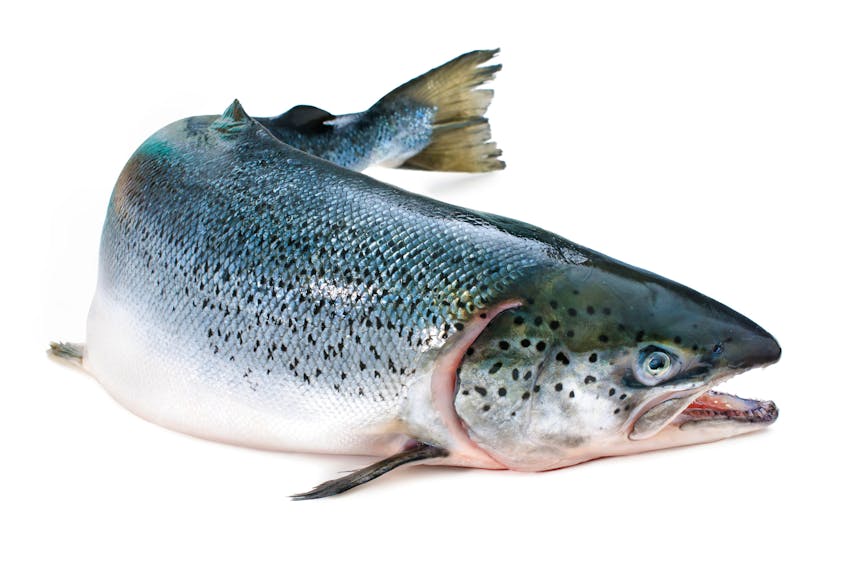Thank you Steve Sutton (March 24 Letter: Wrong for aquaculture industry to blame anglers) for agreeing to the facts in my commentary on the introduction of non-native salmonids by anglers (See: Pink Salmon Nothing New to N.L., March 20). These were: ASF conservation efforts over 60 years have seen exponential declines in wild Atlantic salmon, well before aquaculture; ASF lobbied to influence fishery policy to see the closure of the wild salmon fishery in N.L.; at sea mortality of wild Atlantic salmon is the greatest killer of salmon; and regional and broad scale declines in Atlantic salmon, like southern distributions in N.L., are linked to climate variability.
In your reply to my comments, Mr. Sutton, you were quick to cast aspersions on sustainable aquaculture by playing the blame game and issuing personal attacks. I think readers are savvy enough to understand that those that play the blame game, are more than likely part of the problem, rather than part of the solution.
Here are some additional facts: the aquaculture industry has played a critical role in the recovery of the inner Bay of Fundy’s most threatened salmon stocks, however your employer continues to deny this.
One wonders why?
Another fact Mr. Sutton: DFO manages the recreational salmon resource, and the recent catch statistics reported by DFO suggest that recreational anglers kill a very large number of wild, reproductive Atlantic salmon, especially in N.L. rivers. DFO acknowledges a large, at-sea mortality impacting stocks, however, they certainly do not point the finger aquaculture, as you do in your letter.
Mr. Sutton, please read my commentary again before making spurious allegations: I simply suggested that one of the best ways to conserve wild stocks of Atlantic salmon might be to stop killing them, particularly in their southern range where stocks are at risk. You twisted this to suggest I was blaming the anglers for the demise of wild salmon. You know this is incorrect, you might wish to retract your statement to this effect.
Thankfully, DFO will continue to manage the salmon resource on behalf of Canadians, but I would not be surprised if they applied the precautionary principle in protecting and conserving wild salmon stocks, include management options to further restrict angling bag limits or catch and release policies. It is their responsibility to manage the stocks, not yours, your organization’s, or mine.
Thank you for recognizing that I am an unpaid volunteer on the board of two not-for-profit associations devoted to sustainable aquaculture (CAIA, NAIA). I am proud to be a volunteer for farm associations that are truly making a difference to 10s of thousands of middle-class Canadians in producing sustainable, healthy food, sustainable employment, and protecting the environment, with science-based aquaculture best practices, recognized internationally. Much of this occurs in N.L. waters, which you know, but are against.
So, I am guilty as charged, Mr. Sutton. Sustainable aquaculture is here to stay, across Canada. Salmon farmers, as with all farmers, are environmentalists and conservationists. I am proud to support them in offering science solutions for their farming efforts. I receive no pay for this, nor does the industry fund my research. The reason I “failed to mention” my relations to these groups in my commentary was the piece was not about aquaculture in the first place. I am glad you brought it up, though (my contributions to sustainable aquaculture volunteerism).
I would like to ask you Mr. Sutton, if you are proud to be a paid advocate for an organization that is lobbying on Canadian fisheries policy, including the closure of the fishery for Atlantic salmon in N.L.?
According to ASF’s annual report (free on their site), they do a lot of lobbying to influence fisheries policies, and not surprisingly much of their financial “support” appears to come from American interests (or donors as they are called).
So that organization is most likely steered by foreign interests to advocate on Canadian fisheries policy on wild and recreational fisheries. I am sure many N.L.ers and Canadians are becoming sick and tired of foreign-led “environmental and conservation” groups lobbying Canadians on fisheries policies, natural resource policies, oil and gas policies, and so on. It’s quite blatant if you “follow the money,” but the sad reality is our elected leaders across Canada are falling for it.
Cyr Couturier
Aquaculture scientist, Marine Institute









